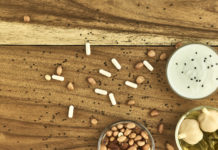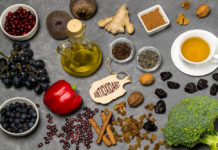8 Foods and Drinks that Speed Up Aging
1. Candy
Candy is perhaps one of the most tempting yet dissatisfying “food” option for the body. While the link between a high-sugar diet and health are well-known, including the risks of obesity, heart disease, and type 2 diabetes, it may speed up the aging process by inducing inflammatory responses in the body. Sugary products are also potential foods that cause wrinkles, pose the risk of dental caries, and may just be one of the worst food for skin and total health overall.
2. Fast Food
Unfortunately, most of the appeal of fast food is not extended beyond the efficiency of receiving quick, convenient meals. Although there can be healthful options at such food establishments, they frequently lack in nutritional value. From the deep-fryer filled with oil to the sugary condiments, large volumes of sugars, fats, sodium, preservatives, and a risk of inflammation are truly what you are ordering at fast food restaurants.
3. High-Salt Foods
Though the body does require sodium, too many salty foods may cause the body to retain water, swell, and lead to “puffiness.” Most of the swelling is witnessed in areas where the skin is thin, including around the eyes. While the salt shaker is a more obvious form of sodium, hidden sources include deli and cured meats, canned soups and beans, breads, and cheeses.
4. Packaged Pastries
Although falling into the temptation of packaged donuts or cakes may satisfy taste buds in the present moment, they tend to leave the body a lot to be desired. Such pastries are essentially nothing more than fats, oils, and refined flours and sugars and can result to inflammation within the body, subsequently accelerating the process of aging.
5. Processed Meat
The World Health Organization (WHO) recently identified processed meat as a confirming cause, encouraging individuals to limit their intake of sausage, lunch meats, hot dogs, ham, bacon, to no more than one to two servings of per month. Fatty red meats are also of concern, prompting the WHO to suggest they are a probable cause of cancer. Yet most of the caution is not based on high-fat red meats themselves, but the risk of consuming a low-fiber diet and risking chronic inflammation, mostly from inadequate intake of whole grains, fruits and veggies, and legumes.
6. Soda
Although the sugary drinks may offer quick satisfaction, the long-term consequences of consuming them are far from sweet. Most sugary beverages supply 20 to 40 grams of sugar, which progresses to or overflows the recommended daily added sugar limit of 25 and 36 grams of sugar per day for women and men, respectively. And while switching from regular to diet soda appears as a “healthy” alternative, pouring evidence implies diet soda can harm both physical and mental health.
7. “Fruit” Juice
Do not let the fruit on the fool you… In fact, so-called “fruit” juices may contain just a trace amount of actual fruit and be laden with added sugars and syrups. When selecting juice, look for a product labeled “100% fruit juice” and make sure the ingredient label is free of sugar and other additives. One serving of fruit juice is also a half-cup (4-ounces), so try avoid filling your tallest glass. Along with racking up the sugar content, a high consumption of lemonade may wither away enamel related to its high acidity content.
8. Alcohol
Although red wine does show to have positive outcomes for longevity, too much alcohol may accelerate the process of aging. And opposing the benefits of red wine, its white counterpart may be a potential risk factor in the development of skin cancer. Researchers and health experts strongly encourage the practice of moderation when it comes to alcohol intake, advising men to drink no more than two alcoholic servings a day with women limiting intake to one serving.









